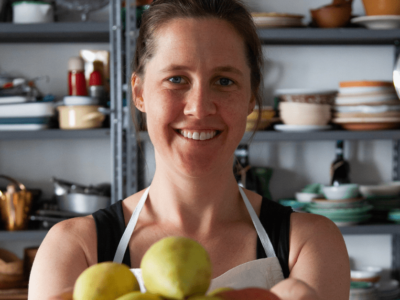One day, back when my wife Kristin and I were just teenagers in love, we carved our names into a tree. We cleared away the bark and cut our names deep into the trunk. We were in love, but had not yet expressed our love, so it was a monumental risk that I took when I asked if I could carve an “and” sign in the space between our names. “You know, as friends.” I said.
She smiled and said, “Sure, as friends.”
Several years ago, on our 18th wedding anniversary, we went back to those woods, where we had returned occasionally over the years. We searched and searched, but this time, we couldn’t find our tree. I discovered a tree that looked like ours, but it was covered with vines. I figured that our names were buried beneath them, and was just about to pull them off when Kristin said, “That is not our tree, and that is definitely poison ivy.”
That is when the argument started.
“No, that is definitely not poison ivy.”
“Yes, it is. It has three leaves.”
“Yeah, but poison ivy doesn’t grow up trees like that. It’s not a vine.”
“Sure it does. It’s ivy.”
“Listen, trust me, I know what poison ivy looks like. I get it every year.”
“Well, obviously you don’t know what it looks like, because you get it every year!”
That comment pushed me over the edge. I knew that I was right, and that she was wrong. This was the tree that bore the symbols of our young love, only now, it was covered with some stupid vines. In my stubborn pride I turned and grabbed the vines with both hands and pulled them from the tree.
It was not our tree, but as it turned out, that was poison ivy. Later that week a doctor was pumping me with steroids in an attempt to stave off the rash that had covered my face, arms, hands, and in between my fingers.
She was right. I was wrong. And that is what I told her later.
“You were right, and I was wrong.”
We have said those words countless times to each other over the years, which are always followed by the words.
“Thank you, and I forgive you.”
I have found that in my stubbornness and pride, I am always wrong. I have found that rightness is a rash. The more I scratch that itch the more it spreads and the more I suffer. I have also found that humility and forgiveness are good medicine for unhealthy relationships.
In Ephesians chapter four the apostle Paul writes,
“2 Always be humble and gentle. Be patient with each other, making allowance for each other’s faults because of your love. 3 Make every effort to keep yourselves united in the Spirit, binding yourselves together with peace. 31 Get rid of all bitterness, rage, anger, harsh words, and slander, as well as all types of evil behavior. 32 Instead, be kind to each other, tenderhearted, forgiving one another, just as God through Christ has forgiven you.
Ephesians 4:2-3,31 NLT
If we want to have relationships that last, we have to be willing to humble ourselves and admit our faults. We also have to be willing to make allowance for each other’s faults and forgive them.
Leaving the woods that day we were sad that the tree bearing the marks of our adolescent affection was gone. We don’t know exactly what happened. Most likely its roots were shallow, and it gave way to some terrible storm. We were heartbroken at the thought of our uprooted tree, but so thankful that despite all of the arguments, and frustrations, and all of the terrible storms we’ve weathered that we are still standing. I am thankful that we are rooted in Jesus, because He is the only one who can teach us true humility, and He is the only one who can help us forgive. Relationships that last are relationships that are rooted deep in the love of Jesus.
16 I pray that from his glorious, unlimited resources he will empower you with inner strength through his Spirit. 17 Then Christ will make his home in your hearts as you trust in him. Your roots will grow down into God’s love and keep you strong.
Ephesians 3:16-18 NLT





 Copyright
2024
Root and Vine
Copyright
2024
Root and Vine